Was the Mastermind chair possibly the most famous chair on British television? I can’t think of another show where removing a chair would collapse the entire concept of the show; but in Mastermind it would have done. The programme just wouldn’t have worked if the contestants were forced to perch on a stool, loll in a deckchair or flop into a beanbag; for the right atmosphere in the very dark studio it just had to be that imposing black leather chair.
I mentioned that the studio was dark and indeed it was; so much so that it became the focus of an excellent sketch on The Mary Whitehouse Experience where the contestant gets lost on the way to the chair and ends up having to be rescued by a specialist team. TMWE weren’t the only ones to parody this institution of British quizzes of course; Monty Python, the Two Ronnies, French & Saunders, Morecambe and Wise, The Goodies, Have I Got News For You and bearded hideous-jumper-wearer Noel Edmonds, amongst others, have all lovingly sent it up over the years.
The one thing that I loved about Mastermind is that it never really changed. Despite going through a few presenters and several different broadcast channels the format of the show always remained constant, with only smallish tweaks made each time. Each contestant faced two rounds: one on their chosen subject followed by one on general knowledge. It goes without saying that it was more fun to watch when the person in the chair failed miserably to answer any questions on what was supposed to be a topic they had a studied knowledge of. Watching their facial expressions when this happened was always amusing: some looked angry at themselves for forgetting the answers, some adopted the ‘these are just not the right questions’ angry grimace at life itself.
While the show itself was harmless, the inspiration behind it didn’t come from a particularly jolly place. The producer, Bill Wright, had had an encounter with the Gestapo during the Second World War and reimagined their interrogation technique of using a bright light in the prisoners’ faces to make them talk. The two or so minutes that each Mastermind contestant had (in this case the light was on them, but not aimed directly into their eyes of course) were intense, and must have felt like a lot longer when you were the one with all eyes on you in the big, black chair. The host would fire questions at you; if you got the answer correct you received one point, if you got it wrong you got nothing and if you didn’t know you could pass. I never understood why anybody passed on a question; if two contestants at the end of the show were tied with a winning score it was decided by who had the least passes. It would have been better to have made up a gibberish answer than to pass just to have more chance of winning if you tied scores. Which, to be honest, was a likelihood anyway – the stress of being in that chair led many people to say ridiculous things on many occasions. One guy, appearing on the show in 2006 got just one question right out of 25 on his specialist subject of Jim Carrey films. Personally, however, I’d feel more ashamed if I had got them all right if that was my topic.
The viewers at home had two choices while the questions were underway; obviously you could try to answer them yourself - although that wasn’t always easy when a contestant’s specialist subject was the life and times of some unheard of Belgian mime artist – or you could watch the camera creeping ever closer to the poor unfortunate’s face as they sweated through their round. And it did get very close; practically up their nose by the time the end buzzer went off.
Mastermind first appeared on BBC2 in 1972, with the ultimate host, Magnus Magnusson, at the helm. His quiet, yet commanding voice set the seriousness of the quiz; and his catchphrase ‘I’ve started so I’ll finish’ (spoken when the end of round buzzer interrupted his reading of a question) has become part of the lexicon. It was also the title of the book that Magnusson wrote about the history of Mastermind. Whilst he was in command of the programme, broadcast on Sunday nights, it became one of the most-watched British television shows. He stayed there until 1997, and while Mastermind continued in various other formats over the years, it was never quite the same without his Icelandic tones guiding the contestants through.
Between 1985 and 1987 the team behind Mastermind also devised Masterteam, a fairly similar quiz show except that yes, you’ve guessed it, it was played by teams. And it was hosted by Angela Rippon. In 1998 Peter Snow presented it on Radio 4, lasting until 2000.
Mastermind itself returned to the TV screens (well, the Discovery Channel) in 2001, with no-neck sniggerpot Clive Anderson in charge. It was made to be interactive with the viewers at home (by using the red button on their remote controls to answer questions) but obviously didn’t catch on as it only lasted for one series.
BBC2 with John Humphreys behind the question master’s desk (oh, did I not mention that Magnus had a desk? He did) in 2003. Whilst Humphreys could still demand the same sort of gravitas that Magnusson had, the new format introduced a slightly more chatty tone, with the contestants indulging in conversations with him between rounds. I’ve never been a fan of game shows that do this; I’m not interested in hearing an oh-so-amusing anecdote about Linda from Birmingham’s youngest son and I couldn’t care less what she does in her spare time. Call me hard-hearted but I just want Linda to sit down in the chair and either be spectacularly good at her chosen subject (impressive), or spectacularly bad (more fun). By 2011, this ‘hey, let’s find out about you’ part of the programme had been dropped. So my 3,454 letters to the BBC had some effect then.
The original Mastermind was filmed in many beautiful or interesting venues, including academic institutions and religious buildings, while the second BBC version was studio based. Not that it mattered in either case really; did I mention that the room it was filmed in was incredibly dark?
I expect you’d like an example, before I go, of some of the specialist topics that the contestants on Mastermind throughout the years picked. I’ve based these on my assumption that the people who chose them would be very boring to sit next to at a dinner party. You could have picked any subject on earth – yet you decided to dedicate your time to learning all about this?
Here we go – please try to stay awake. 20th century British warships; the postal history of Southern Africa; the regency novels of Georgette Heyer; the London borough of Wandsworth; golfing majors since 1970 and the history of chemistry 1500 – 1870. What were you thinking?
Obviously there were some topics that the BBC considered unsuitable, although in some cases I can’t work out why. What isn’t to like about ‘orthopaedic bone cement in total hip replacement’? I’ll also always be upset that ‘routes to anywhere in mainland Britain by road from Letchworth’ didn’t make it on to the screen.
I’d like to shake the hand of 2005 champion Patrick Gibson, however, for winning his heat, the semi-final and the final with the chosen subjects of, respectively: the films of Quentin Tarantino, the Culture novels by Iain M. Banks and Father Ted. Good man – there’s a chair for you next to me at the dinner table at any time.
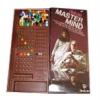
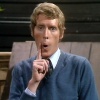
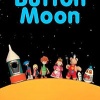

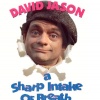
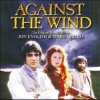
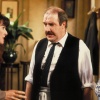

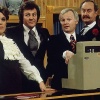
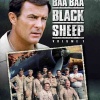
Do You Remember Mastermind?
Do You Remember Mastermind?